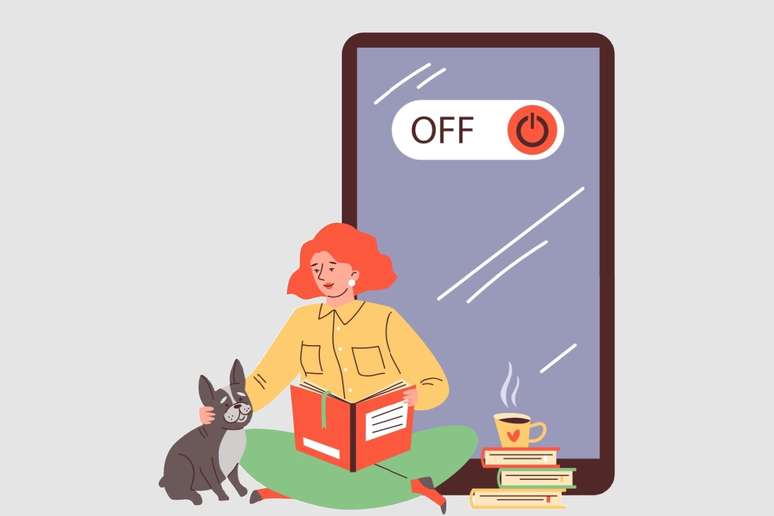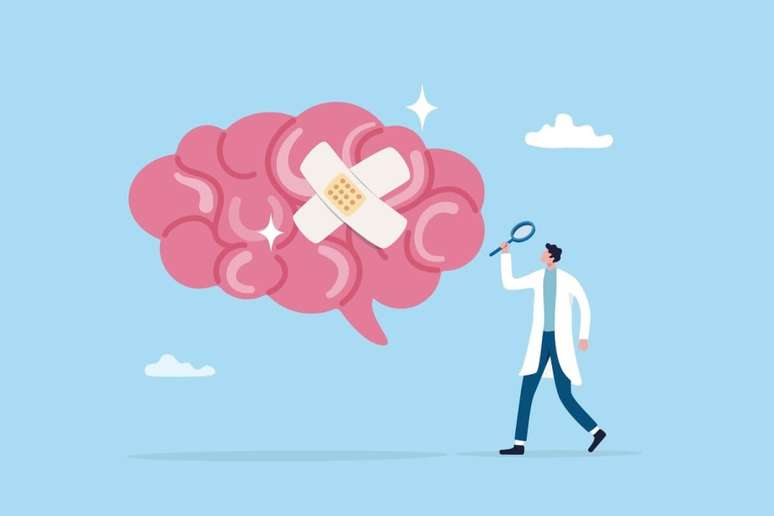Find out how to preserve your attention and avoid the negative effects of excess digital stimuli
We live a hyperconnex era, in which the speed of information exceeds our ability to process it. Every second we are exposed to an exorbitant volume of data, from news and notifications to short videos and instant entertainment content. Although this looks harmless, excess stimuli are able to lead to mental fatigue, compromise memory, creativity and concentration ability. Over time, this digital overload can trigger symptoms such as anxiety, procrastination and even apathy in the face of the activities that once aroused interest.
What is the disorder of Cerebral rot
Cerebral rot It is an expression that means “cerebral rot” or “rotten brain”. It was chosen as the word of the year 2024 by Oxford University Press due to its growing use among young people on social networks to describe mental deterioration caused by excessive consumption of online content.
The disorder can be caused by the consumption of content online Of low quality, spend a lot of time connecting to electronic devices, consuming quick and superficial content, sensational content that do not stimulate deep thought.
Pay attention to the information consumed
The sensational, disinformation or banal content is harmful and it is also important to avoid the Scholling, This is the habit Excessive negative news, associated with depression and insomnia, which constitutes a vicious circle that promotes the reduction of well -being and productivity.

14 Tips to reduce the impacts of the putrefaction of the brain
By adopting healthy practices, it is possible to minimize the impacts of Cerebral rot and promote mental balance. Take a look at the suggestions below:
- Digital hygiene: establish limits to the use of devices and social networks;
- Intentional consumption: give priority to the quality content and reliable sources;
- Mindfulness: Practices such as meditation regulate emotions and neurophysiology balance;
- Critical thinking: Questions consumed information creates effective cognitive filters;
- Concentration improvement: the reduction of digital distractions increases the concentration and ability to complete important tasks;
- Strengthen social connections: establish facial interactions to face improves empathy and emotional support;
- Promotion of sleep repair: decrease the use of canvases before going to bed improves the quality of sleep and mental health;
- Stimulus to creativity: Intentional breaks and periods offline encourage creative thinking;
- Stress reduction: control of the flow of excessive information prevents cognitive overload and promotes tranquility;
- Development of mental resilience: limiting harmful stimuli, the mind becomes more resistant to frustrations and challenges;
- Improvement of information processing: conscious consumption of content promotes the organization of thought and decision -making process;
- Increase in cognitive autonomy: practices such as critical thinking and personal reflection strengthen the ability to form independent opinions;
- Strengthen physical health: reduce the Visualization time He decreases physical inactivity and encourages physical activities;
- Harmonization of emotions: develop the car -which to balance the mood and prevent intense emotional oscillations.
By Marta Relvas
Biologist, dra.hc in education, doctoral and master in psychoanalysis, neuroscientist, neuropsychopiagogogogogogoga, psycho -peded, effective member of the Brazilian society of neuroscience and behavior. Among the books released there are “neuroscience and learning disorders”, “biological bases of education” and “under the command of the brain”.
Source: Terra
Ben Stock is a lifestyle journalist and author at Gossipify. He writes about topics such as health, wellness, travel, food and home decor. He provides practical advice and inspiration to improve well-being, keeps readers up to date with latest lifestyle news and trends, known for his engaging writing style, in-depth analysis and unique perspectives.








